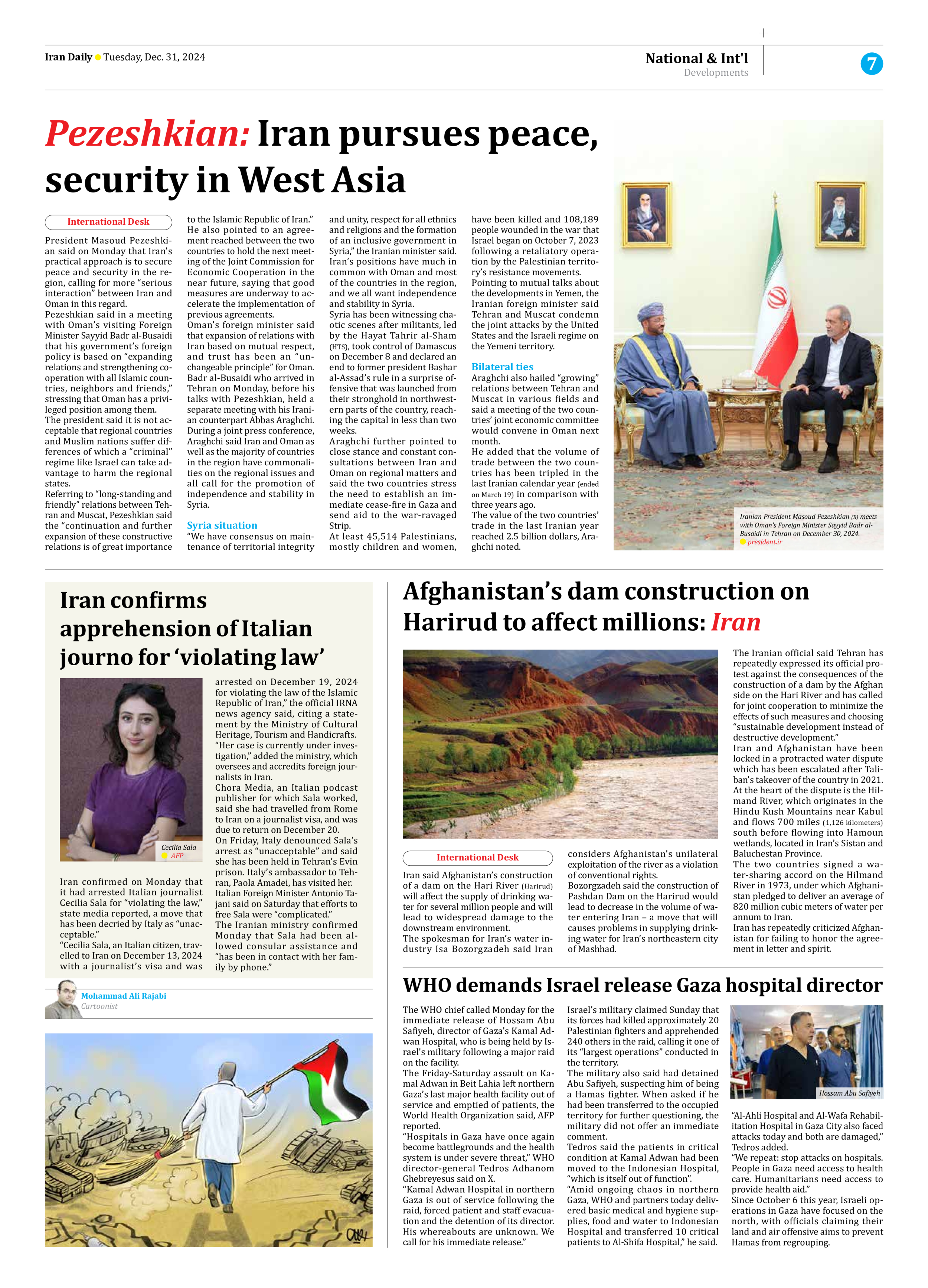
Afghanistan’s dam construction on Harirud to affect millions: Iran
Iran said Afghanistan’s construction of a dam on the Hari River (Harirud) will affect the supply of drinking water for several million people and will lead to widespread damage to the downstream environment.
The spokesman for Iran’s water industry Isa Bozorgzadeh said Iran considers Afghanistan’s unilateral exploitation of the river as a violation of conventional rights.
Bozorgzadeh said the construction of Pashdan Dam on the Harirud would lead to decrease in the volume of water entering Iran – a move that will causes problems in supplying drinking water for Iran’s northeastern city of Mashhad.
The Iranian official said Tehran has repeatedly expressed its official protest against the consequences of the construction of a dam by the Afghan side on the Hari River and has called for joint cooperation to minimize the effects of such measures and choosing “sustainable development instead of destructive development.”
Iran and Afghanistan have been locked in a protracted water dispute which has been escalated after Taliban’s takeover of the country in 2021.
At the heart of the dispute is the Hilmand River, which originates in the Hindu Kush Mountains near Kabul and flows 700 miles (1,126 kilometers) south before flowing into Hamoun wetlands, located in Iran’s Sistan and Baluchestan Province.
The two countries signed a water-sharing accord on the Hilmand River in 1973, under which Afghanistan pledged to deliver an average of 820 million cubic meters of water per annum to Iran.
Iran has repeatedly criticized Afghanistan for failing to honor the agreement in letter and spirit.







